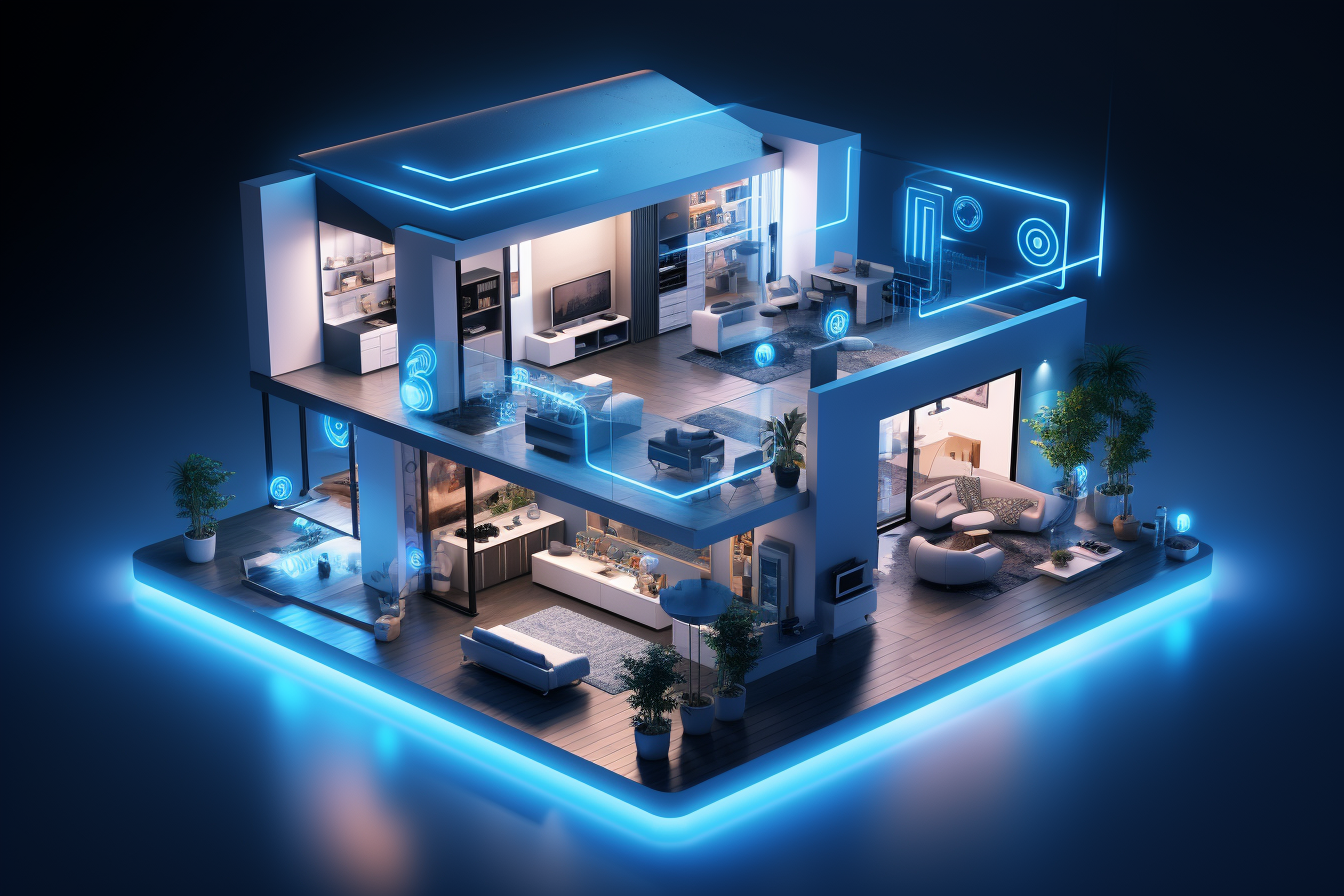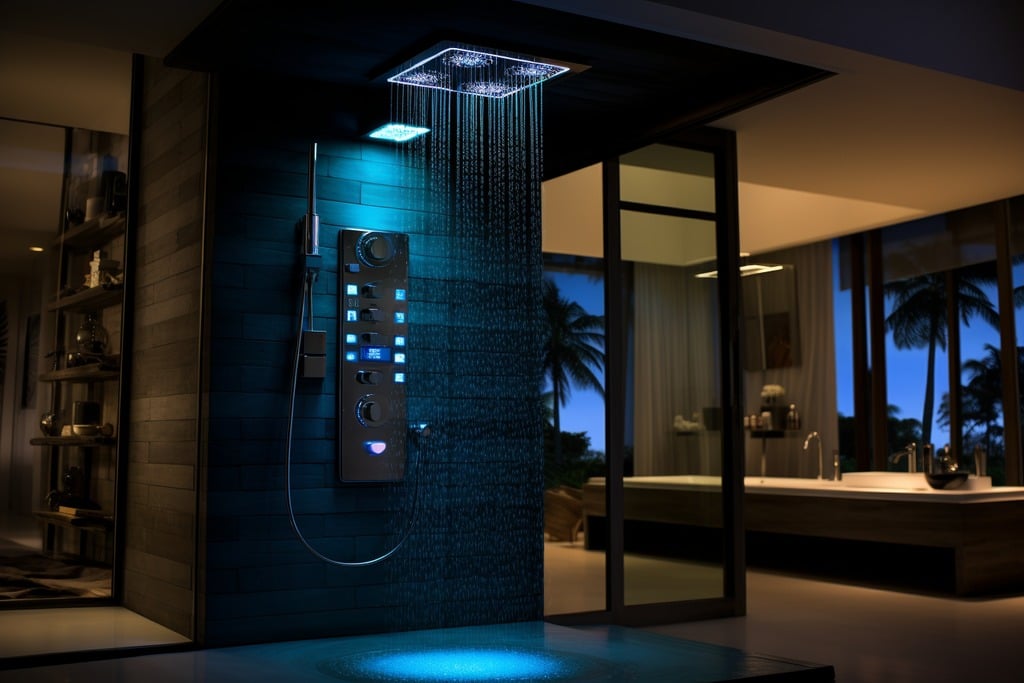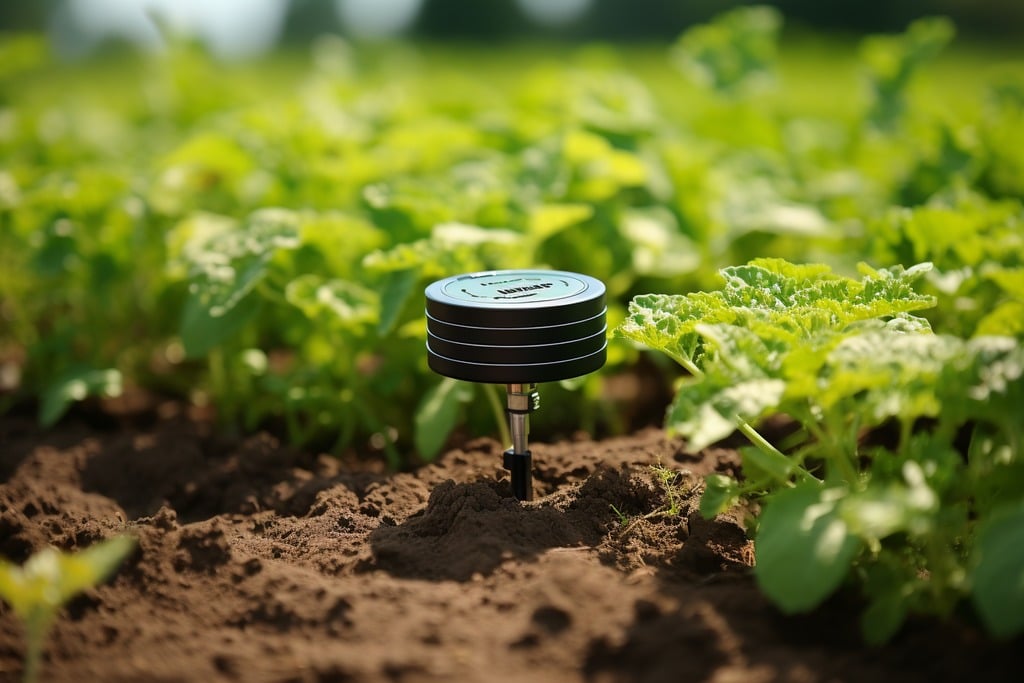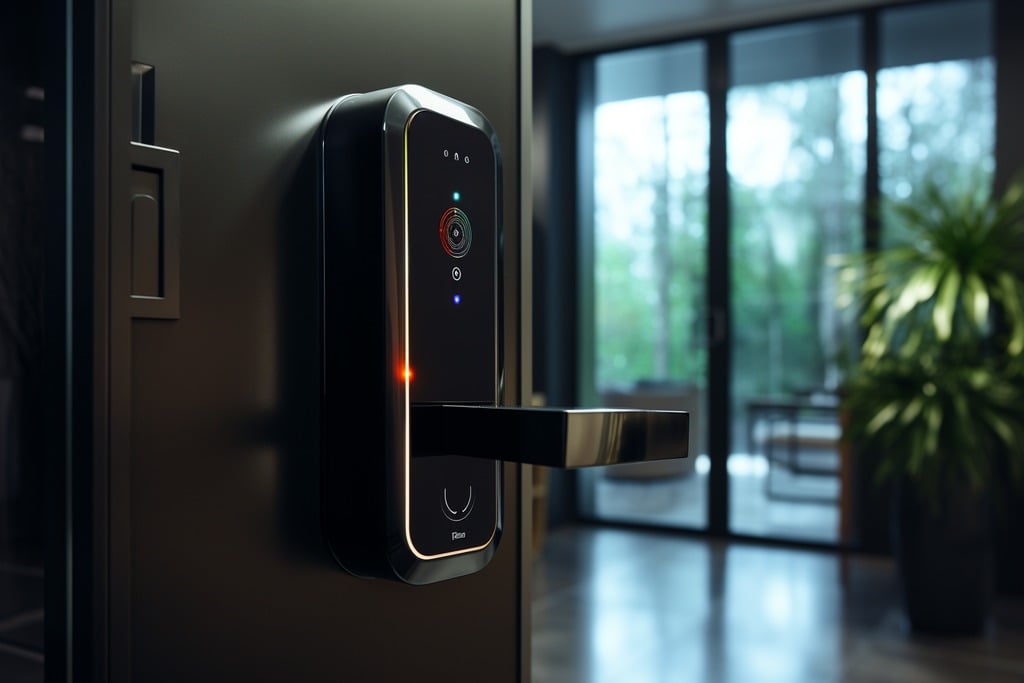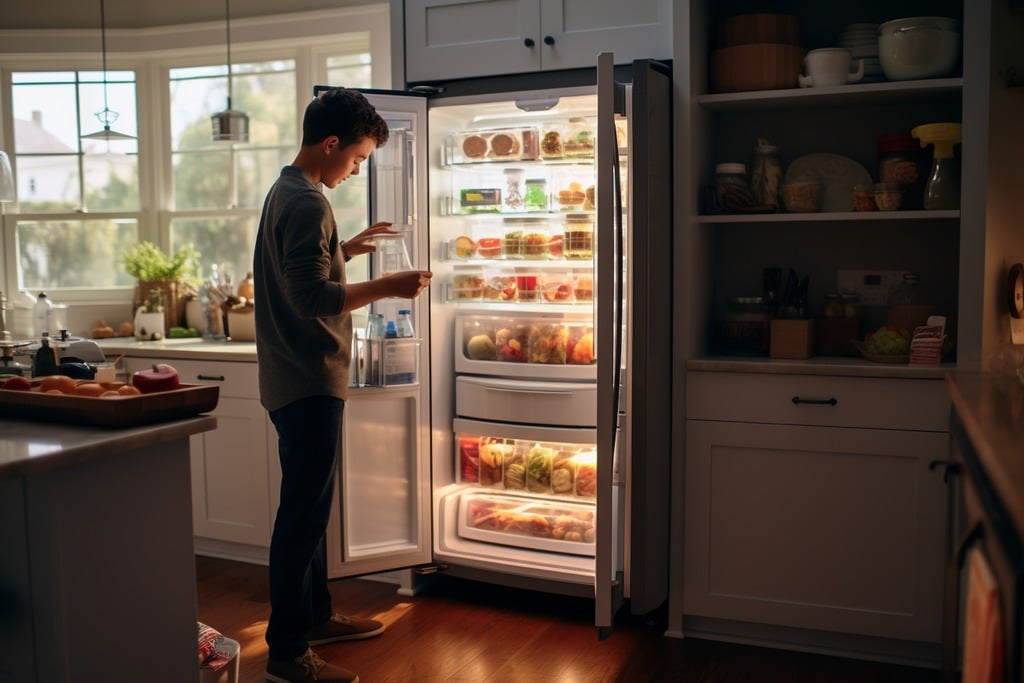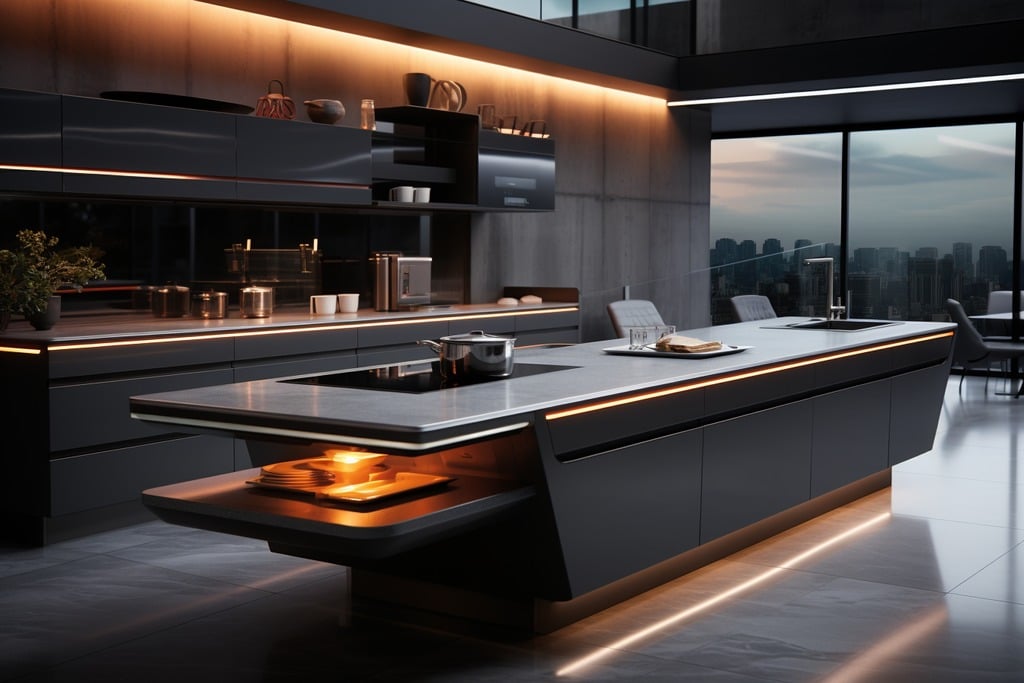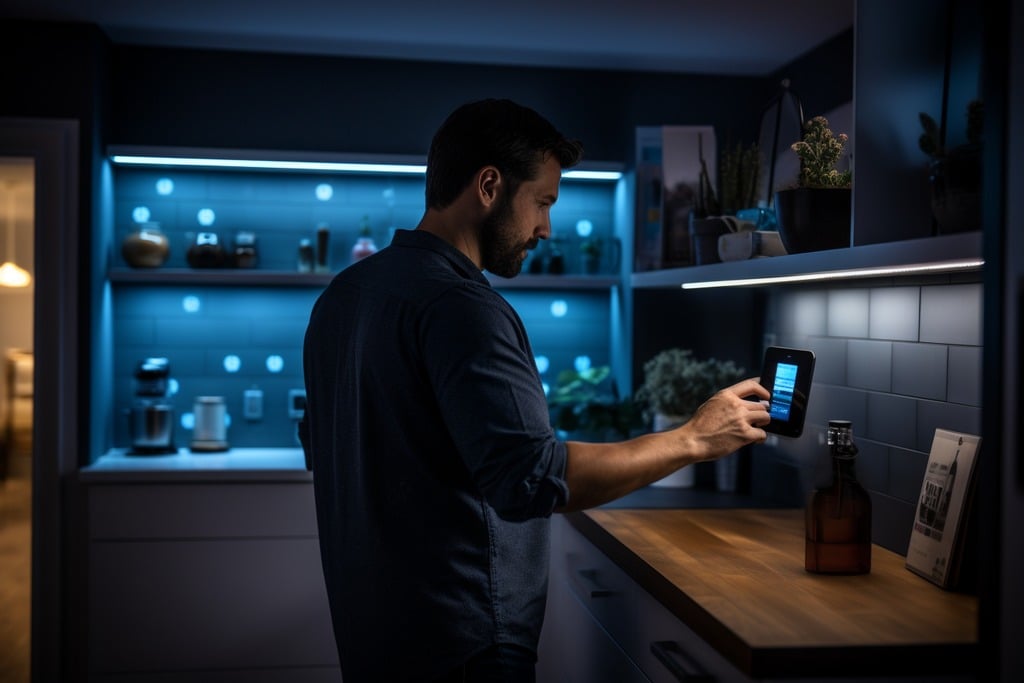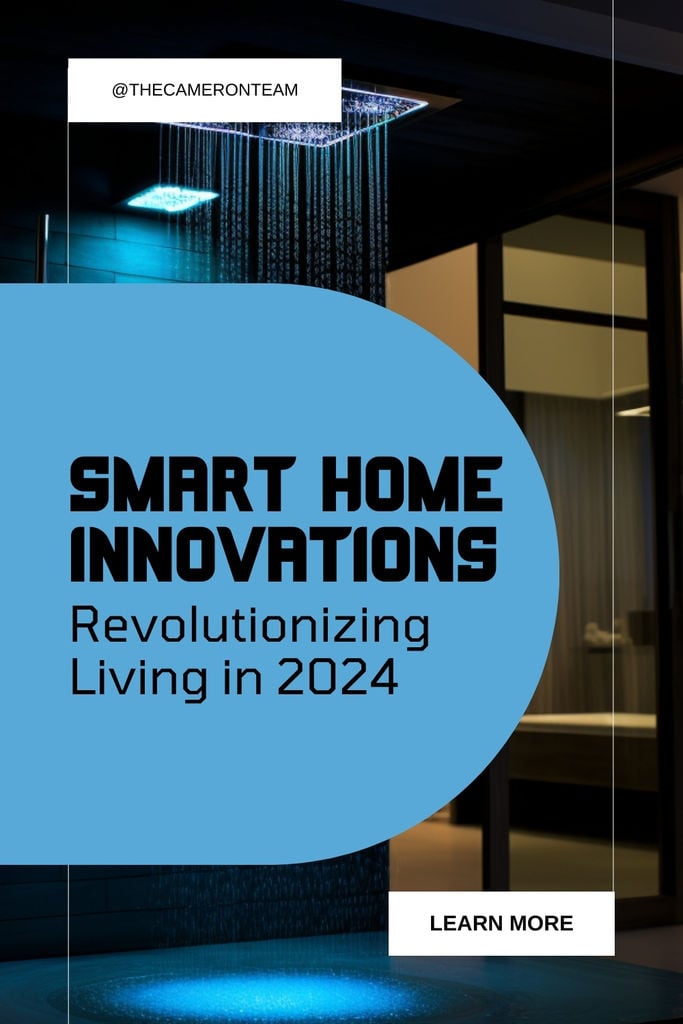Key Takeaways
| Trend | Benefit | Application |
|---|---|---|
| Smart Kitchen Appliances | Efficient Meal Preparation | Pre-programmed settings, real-time monitoring |
| Smart Shower Innovations | Customized Bathing Experience | Temperature control, energy savings |
| Touchless Faucets & Toilets | Enhanced Hygiene & Water Conservation | Reduced germ spread, automated features |
| Eco-conscious Water Management | Environmentally Friendly Practices | Optimized lawn care, reduced water waste |
| Health-focused Smart Devices | Improved Physical & Mental Well-being | Fitness trackers, intelligent air purifiers |
| Biometric Security Solutions | Enhanced Safety & Privacy | Fingerprint scanners, facial recognition |
| Solar Energy Integration | Sustainability & Energy Efficiency | Reduced reliance on traditional energy sources |
The Rise of Smart Home Technologies
As we step into 2024, the age of the smart home has evolved dramatically, featuring significant advancements in connected technology. More homeowners are now valuing eco-friendly and efficient smart home technologies, reshaping how we live and interact with our homes. This surge in smart home popularity brings numerous benefits, including energy savings, heightened security, and added convenience and comfort.
Please note: The Cameron Team has not been paid or received any other compensation to include any of the products featured on this post, but the author has included affiliate links and content. If you click on a link, they may earn a commission – a high-five for great content!
Smart Kitchen Appliances: Cooking Made Convenient
The evolution of smart kitchen appliances is a prime example of these advancements. With a focus on integrating smart home systems, these appliances offer pre-programmed settings and automated cooking times, transforming the way we prepare meals. For instance, imagine turning on your oven from anywhere or monitoring its temperature in real-time. These features not only make cooking more convenient but also enhance the overall culinary experience.
Refrigerators: The Smart Inventory Managers
Refrigerators have stepped up their game too. Today’s smart fridges come equipped with inventory tracking, automatic grocery ordering, and even meal planning capabilities based on what’s available. This not only simplifies your grocery shopping but also helps in minimizing food waste.
Smart Shower Innovations: Personalizing Your Bathing Experience
In the realm of bathroom innovations, smart showers are making waves. Digital showers now come with user profiles to control temperature, duration, flow, and include optional features like audio therapy and aromatherapy. Integrated with home assistants and voice activation, they provide a highly personalized and efficient bathing experience, further contributing to energy savings.
Touchless Faucets & Smart Toilets: Hygiene and Conservation Combined
The design of touchless faucets and smart toilets emphasizes hygiene and water conservation. Touchless faucets operate without physical contact, reducing germ spread, while smart toilets offer sleek designs with features like bidet integrations and self-cleaning technology. These advancements not only promote better hygiene but also contribute to water conservation efforts.
Eco-Conscious Water Management: A Step Towards Sustainability
Focusing on environmentally friendly practices, smart homes are now incorporating eco-conscious water networks. Features like smart sprinkler controllers and wireless soil sensors optimize lawn care and indoor water usage. They provide total control over water consumption, fostering sustainable habits and reducing environmental impact.
Health-Focused Smart Devices: Enhancing Well-being
With health becoming a priority, smart homes in 2024 are integrating devices that focus on physical and mental well-being. From smart exercise equipment to intelligent air purifiers, these devices aim to improve the overall health of the inhabitants. They can connect with other smart home systems, syncing with lighting, temperature, and entertainment for a customized exercise environment.
Biometric Security: A New Era of Home Safety
As smart homes become more interconnected, the importance of security and privacy has risen. Biometric security solutions like fingerprint scanners and facial recognition are gaining popularity, offering enhanced safety compared to traditional security measures. Biometric door locks and smart security cameras with facial recognition capabilities provide customized access and heightened security.
Solar Energy Integration: Powering the Smart Home Sustainably
The integration of solar energy is a key trend in 2024’s smart homes. By combining solar panels with energy storage solutions, homeowners can reduce their reliance on traditional energy sources, lower energy bills, and minimize their carbon footprint. This trend aligns with the growing focus on sustainability and energy efficiency.
Embracing the Future of Smart Living
The latest innovations and trends in smart homes are all about improving quality of life, convenience, and sustainability. From connected appliances and smart showers to eco-conscious water networks and biometric security solutions, 2023 marked a year of major advancements in smart home technology. These innovations continue to shape our living spaces, promising a more connected and efficient future.
To learn more about smart home security systems, explore our comprehensive guide on The Top 5 Smart Home Security Systems, providing detailed insights into the latest in home security technology.
In the next part of the article, we will delve deeper into the specific trends and technologies that are defining smart homes in 2024, focusing on their impact on real estate, home value, and the futuristic living experience.
Expanding the Horizon: Smart Homes in Real Estate
The Impact of Smart Home Technology on Home Value
The integration of smart home technology significantly impacts real estate, particularly in enhancing home value. Smart features like energy-efficient appliances, advanced security systems, and automated controls are increasingly sought after by home buyers. They not only offer convenience and safety but also promise long-term savings on utility costs. This appeal translates into higher property values and can be a decisive factor for buyers in the competitive real estate market.
Smart Homes as a Selling Point
For Realtors, showcasing homes with smart technology can be a unique selling proposition. It positions the property as a modern, future-ready investment, appealing to tech-savvy buyers and those prioritizing sustainability and convenience. Real estate agents can leverage these features to differentiate listings, attract a broader range of buyers, and potentially close sales faster.
Adapting to the Smart Home Era
The rise of smart homes also necessitates a shift in the real estate industry’s approach. Realtors need to familiarize themselves with smart home technologies to effectively communicate their benefits to potential buyers. This includes understanding how these systems work, the cost and energy savings they offer, and their impact on lifestyle and home maintenance.
The Future of Living: A Futuristic Perspective
Beyond Convenience: The Holistic Approach
The future of smart homes goes beyond mere convenience. It’s about creating a holistic living experience where technology seamlessly integrates into every aspect of life. This includes health monitoring, entertainment, and even gardening, offering an unprecedented level of personalization and control over one’s living environment.
The Role of AI and Automation
Artificial Intelligence (AI) plays a crucial role in advancing smart home technology. AI-driven systems can learn user preferences and habits, automatically adjusting settings for optimal comfort and efficiency. This could mean a house that knows when to dim the lights, adjust the thermostat, or even suggest recipes based on the ingredients in your smart fridge.
Smart Homes and Sustainability
Sustainability is a cornerstone of future smart home design. Innovations are increasingly focused on reducing carbon footprints, with features like solar energy integration and smart water management systems. These not only help in conserving resources but also in promoting a sustainable lifestyle, contributing to broader environmental goals.
In the final part of the article, we will explore how smart homes are reshaping our daily routines and interactions with our living spaces, and the potential future developments in this exciting field.
Smart Homes: Reshaping Daily Life and Interactions
Personalized Living Spaces
Smart homes are transforming our daily routines by offering highly personalized living spaces. Imagine a home that greets you with your favorite music, adjusts the lighting to suit your mood, and even preheats the oven for dinner. This level of customization enhances the quality of everyday life, making homes more than just a place to stay; they become a personal sanctuary tailored to individual preferences.
The Interconnectivity of Devices
The interconnectivity of devices in a smart home creates a cohesive ecosystem. Whether it’s controlling your smart oven from your smartphone or having your fitness tracker communicate with your smart thermostat to cool down the house after a workout, these connected systems work together to create a seamless and intuitive living experience.
Enhanced Safety and Security
Smart homes also offer enhanced safety and security. Advanced security systems, like the ones detailed in our Top 5 Smart Home Security Systems guide, provide peace of mind with features like remote monitoring, automated locks, and alerts for unusual activity. These systems not only protect against external threats but also help in monitoring and ensuring the safety of residents, particularly the elderly or those with special needs.
The Future of Smart Homes
Emerging Technologies and Innovations
The future of smart homes is brimming with possibilities, driven by emerging technologies and innovations. We can expect further advancements in AI, machine learning, and IoT (Internet of Things), leading to even smarter and more intuitive home systems. This could include everything from self-cleaning technologies to AI-driven personal assistants that manage our schedules and even order groceries.
The Integration of Virtual and Augmented Reality
Virtual and Augmented Reality (VR/AR) technologies have the potential to further transform the smart home experience. These technologies could be used for everything from virtual interior design, allowing homeowners to visualize changes before they happen, to augmented user interfaces for controlling home devices.
Looking Ahead: The Smart Home of Tomorrow
As we look ahead, the smart home of tomorrow promises to be more connected, efficient, and responsive to our needs. It will continue to evolve, offering solutions that anticipate our desires and make our lives easier, safer, and more enjoyable.
Smart homes are not just a futuristic concept but a present reality that’s reshaping our living experience. As we embrace these advancements, our homes will become more than just a physical space; they will be an extension of ourselves, catering to our needs, preferences, and lifestyles.
That concludes our exploration of smart home innovations and their transformative impact on living in 2024. From advanced kitchen appliances to integrated security systems, these technologies are setting the stage for a future where homes are not just shelters but dynamic environments that adapt to and enhance our lives. As we continue to witness these exciting developments, it’s clear that the smart home revolution is just beginning, promising a more connected, efficient, and personalized future for everyone.

